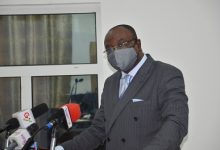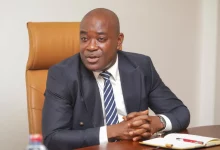The First Deputy Speaker, Joseph Osei Owusu, has cautioned governments in the world not to hide behind COVID-19, to abuse emergency powers.
The Speaker said despite the exigencies of the time, it was necessary emergency powers were subjected to legislative scrutiny and review for the general good of the country and citizens.
He made the call at the Inter-Parliamentary Union’s (IPU) Fifth World Conference of Speakers of Parliament, in Vienna, Austria, on Tuesday.
Mr Owusu, who is also the MP for Bekwai, said attempts to contain the virus which has claimed more than 4.6 million lives worldwide, have scaled up the use of emergency powers, giving rise to the widespread abuse of those powers.
“The threat to democracy occasioned by this, appears to be more catastrophic than the losses that have been experienced by humanity during the pandemic as the world risks losing the dividends of democracy should we fail to act in unison and fast enough,” he said.
According to Mr Owusu, the ‘shrinking space’ of democracy as a result of the search for solutions to the pandemic, has been characterised, in a number of countries, by excessive use of emergency powers by the Executive arm of government.
He noted that, consequently, these reflected in decisions taken without recourse to the legislature, in some cases, without due consideration to the concerns of opposition parties and in most cases, very repressive in their outlook.
“Such decisions, devoid of public input, do not often reflect the preferences of the governed neither do they guarantee the public choices making them liable to scaling down the standard of living of the people as human rights abuses are inherent in this as basic freedoms are denied the people.”
Mr Owusu said though emergency powers were essential in dealing with major global challenges, including the COVID-19, it was for good reason that laws of most countries required that emergency measures undertaken by governments were brought to the legislature for ratification.
Sharing Ghana’s experience with the participants, he said the imposition of restrictions legislation, granted the President emergency powers for a period of three months and could be extended for three more months when it was absolutely necessary.
“That way, Parliament retained its control of the regulatory authority of the country,” Mr Owusu stated.
He said “it is my considered opinion that it is always necessary to subject the use of emergency powers by government to regular legislative scrutiny and review.”
BY JULIUS YAO PETETSI




